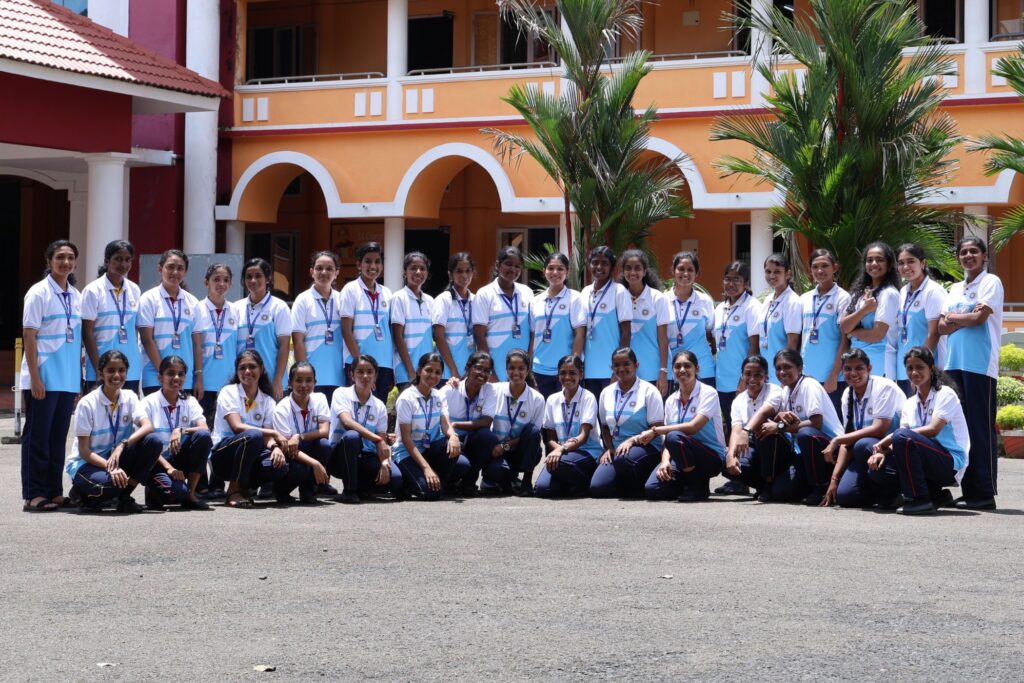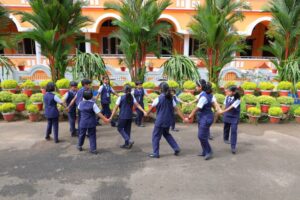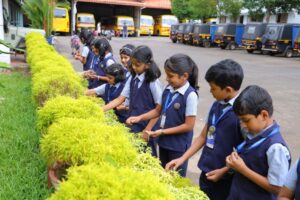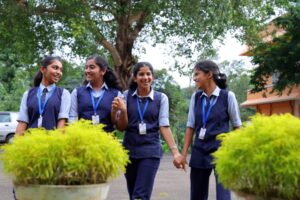About
About us
Little Flower Public School
Little Flower Public School, Kollamula (LFPS) is nestled amidst the rolling hills and lush greenery of God’s own country. This enchanting hamlet, cradled by nature’s splendor always exudes a serene charm and magnetism. The warm sunlight filters through the canopy of rubber trees and teakwood trees casting dappled shadows on the earthy terrain. The air is filled with the sweet fragrance of blooming flowers and the gentle hum of birdsong.
LFPS like a hidden gem is tucked away in Kollamula’s heart promising an unforgettable experience of elegance in discovering the hidden uniqueness of individuals. It is a premier educational institution owned and managed by the Society for Education and Charity, Kollamula (Reg. No. P. 288/95), a constituent of the Social Services of Claretian Missionaries, St. Thomas Province. LFPS was founded on 12th May, 1994 by the dynamic and visionary leadership of Rev. Fr. Antony Thannickal, the then parish priest of St. Maria Gorethi Church, Kollamula. In the year 2003, the Claretian Missionaries took it over them the diocese of Kinjirappally.
Our school offers a comprehensive range of facilities designed to foster self-confidence, creativity, and academic excellence among our students. Our faculty comprises highly trained and qualified professionals who emphasize skill-based, competency-driven, and concept-oriented learning. At LFPS, we pride ourselves on providing a personalized and supportive learning environment, where each student is recognized and valued as an individual. You will never be just another face in the crowd here; our commitment is to help you grow into a confident, creative, and compassionate individual.

About the school
Nestled in the heart of Kollamula, Little Flower Public School is a premier educational institution owned and managed by the Society for Education and Charity, Kollamula (Reg. No. P. 288/95). As a part of the Social Services of Claretian Missionaries, St. Thomas Province, our school is deeply rooted in the values of compassion, integrity, and excellence. Under the guidance of our Manager, who serves as the ex-officio Chairman of the Society, our school is committed to providing a holistic education that nurtures the intellectual, emotional, and spiritual growth of our students. With a strong focus on academic rigor, character development, and community service, we strive to empower our students to become compassionate leaders and responsible citizens of the world.

Our Vision
Our Mission
The Claretian educational apostolate is dedicated to nurturing compassionate and empathetic individuals who embody spiritual depth, moral integrity, intellectual curiosity, social responsibility, and cultural inclusiveness. We strive to create a supportive, inclusive environment that fosters holistic growth, empowering students to become active agents of positive change in the society. Our mission is to create a civilization of love, where individuals embody Gospel values and the universal ethical and spiritual principles, demonstrate moral courage and discernment pursue academic excellence and lifelong learning, engage in social justice and community service, celebrate diversity and promote cultural understanding, by living this mission, we aspire to shape a brighter future, where love, compassion, and wisdom guide human flourishing.
Our Core Objectives
- Provide dynamic, high-quality education that adapts to the evolving needs and aspirations of our time.
- Foster critical awareness and social responsibility in students, empowering them to address real-world challenges.
- Nurture character and personality development through personalized guidance and mentorship.
- Cultivate a strong sense of justice, human rights, and compassion for the marginalized and vulnerable.
- Instill refined manners, respectful communication, and disciplined habits, promoting personal growth and self-respect.
- Inspire a deep love and reverence for God, selfless love for humanity, and kindness towards all creation.
- Promote ecological awareness, environmental stewardship, and responsible conservation of natural resources.
- Encourage critical thinking, inquiry-based learning, and independent thought, empowering students to analyze, evaluate, and innovate.













